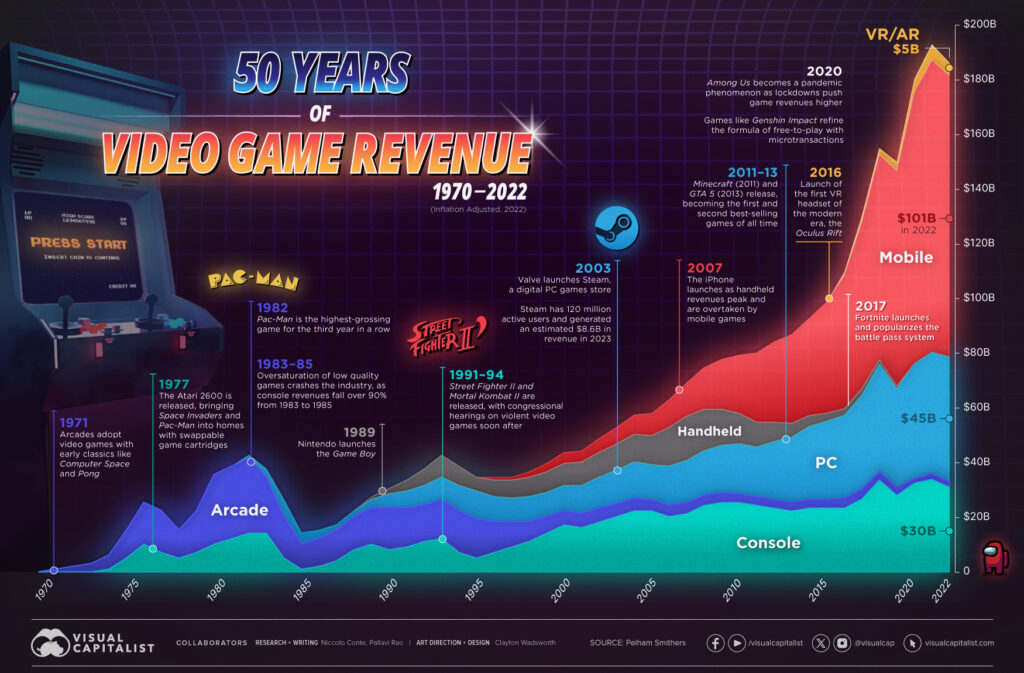The article “50 Years of Video Game Industry Revenues, by Platform” on VisualCapitalist.com takes a very detailed look at the development of the video game industry from its humble beginnings in 1970 to today’s media giant with a turnover of over 180 billion US dollars in 2022.
The data for the article, which we have linked below, was provided to our colleagues by the British market research company Pelham Smithers and should therefore be valid.

The story begins with the company Atari, which conquered the market with coin-operated games such as Computer Space (1971) and Pong (1972). Within seven years, the division’s turnover exceeded that of the American film and music industry. This was later followed by the first consoles, such as the Atari VCS 2600 system, which brought “arcade blockbusters” into children’s rooms.
In the 1980s, Nintendo took over and supplied both the hardware and the first games that established the genre of casual gaming with the Nintendo Entertainment System and Super Mario Bros. With consoles such as Wii, Wii u, Switch and games such as Super Mario Bros. Wonder, the Japanese are still the best at getting the whole family together in front of the TV and getting them excited about almost non-violent games.
With the advent of home computers in the 1980s and 1990s, more and more PC games emerged, and later the spread of smartphones led to a boom in mobile gaming. In recent years, the development of augmented reality and virtual reality technologies has also created new growth opportunities for the industry. The impressive development of the video games industry, from the first Atari or Nintendo games to modern AR and VR technologies, shows how gaming has developed into a cultural and economic driver over the decades.
The journey through the history of gaming in the study and article linked here shows that video games are far more than just entertainment – they are a reflection of our constantly changing society and current pop culture – and also a driving force for technological innovation.
For a more in-depth look at the topic, particularly with regard to the development of sales in the games industry since the early 1970s, we recommend the article by our colleagues linked here.
